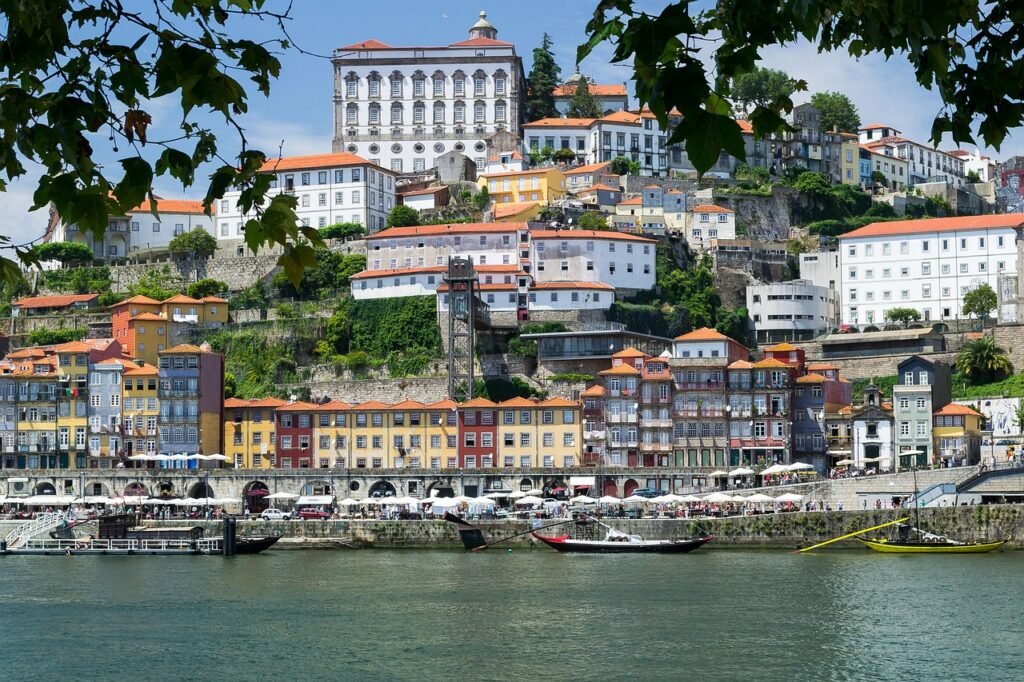Is it Easy to Get a Digital Nomad Visa in Portugal for Americans?
Digital nomad visas are a relatively new but rapidly growing legal category that allows remote workers to live and work abroad while complying with immigration laws. Unlike traditional work visas, these are designed specifically for freelancers, remote employees, and entrepreneurs who earn income from outside the host country.
In recent years, Portugal has emerged as one of the most attractive destinations for digital nomads, and for good reason: a mild climate, low cost of living, a vibrant expat community, and a visa process that’s surprisingly accessible—especially for U.S. citizens.
So, let’s tackle the big question: Is it easy to get a digital nomad visa in Portugal if you’re an American? The short answer is: It can be, if you’re well-prepared.
Let’s dive into what that means.

Have Questions? Contact Us Today
Overview of Portugal’s Digital Nomad Visa (2025)
Portugal’s digital nomad visa, officially referred to as the D8 Visa or Remote Work Visa, was introduced in late 2022 and has undergone some updates in 2025 to improve clarity and eligibility requirements.
Who It’s For:
- Remote employees working for companies outside Portugal
- Freelancers who offer services to clients abroad
- Entrepreneurs or business owners operating online businesses
Not to Be Confused With:
- D7 Visa: Designed for retirees and individuals with passive income (like rental income or dividends).
- Tourist Visa: Allows 90 days of stay but does not permit remote work legally.
The D8 Visa is tailor-made for remote work professionals. Unlike the D7, it specifically asks for proof of active income from remote work. This distinction makes it a better fit for Americans who are employed or self-employed in the U.S. and want to base themselves in Portugal.
Can Americans Apply Easily?
Yes, Americans are absolutely eligible for Portugal’s digital nomad visa. In fact, Portugal is one of the most welcoming EU countries for U.S. citizens.
Why It’s Friendly for Americans:
- No language requirement for the application
- Visa-free entry for up to 90 days while applying (ideal for early-stage planning)
- Strong diplomatic ties and well-established expat communities
- Legal pathways to long-term residence and even citizenship after 5 years
Portugal’s consulates in the U.S. (Boston, San Francisco, New York, Washington D.C., etc.) have experience handling visa applications from remote workers and freelancers.

Have Questions?
Contact One of Our Experts Today
Eligibility and Requirements (2025)
To apply for the D8 Visa in 2025, you need to meet several clear criteria. Here are the updated details:
Minimum Income Requirement
- Monthly Income: At least €3,280 (approx. $3,550 USD) before taxes
- If you have dependents, this amount increases by 50% for a spouse and 30% per child
Required Documents
- Valid U.S. Passport (must be valid for at least 6 months beyond intended stay)
- Proof of Remote Work:
- Employment contract OR
- Proof of freelance clients (invoices, contracts)
- Proof of Income:
- Pay stubs, bank statements, or tax returns
- FBI Background Check:
- Must be apostilled and issued within the last 90 days
- Health Insurance:
- International coverage valid in Portugal with a minimum of €30,000 in coverage
- Portuguese NIF (Tax Number)
- Portuguese Bank Account:
- Must show sufficient funds (often 12 months of living expenses)
- Accommodation Proof:
- Rental agreement, Airbnb reservation, or invitation letter
- Motivation Letter:
- Explain why you want to live in Portugal and how you meet the criteria
Legalization & Translation
- Some documents must be apostilled (e.g., FBI background check)
- Non-Portuguese documents must be translated into Portuguese by a certified translator
Application Process: Step-by-Step
Here is a comprehensive checklist to help you navigate the D8 Visa process from start to finish:
Step 1: Gather All Documents
Start collecting documents early, especially the FBI background check, which can take weeks.
Step 2: Get Your NIF (Portuguese Tax Number)
- You can obtain this via a tax representative or a service provider
- Required to open a bank account and sign leases
Step 3: Open a Portuguese Bank Account
- Many expats use services like Millennium BCP, ActivoBank, or online-friendly banks like Novo Banco
- Deposit at least 12 months’ worth of income (approx. €39,360)
Step 4: Submit Your Visa Application
- Apply at your nearest Portuguese Consulate in the U.S.
- Book your appointment early—wait times can be several weeks
Step 5: Attend Visa Interview (if required)
- Be ready to discuss your work, income, and plans in Portugal
Step 6: Wait for Approval
- Processing Time in 2025: 30 to 60 days
Step 7: Enter Portugal
- You’ll receive a 120-day visa to enter Portugal
- Once in-country, book an appointment with SEF (Serviço de Estrangeiros e Fronteiras)
Step 8: Apply for Residence Permit
- Your SEF appointment confirms your residence permit for up to 2 years
- Renewable for another 3 years, leading to permanent residency or citizenship after 5 years
Is It Really “Easy”? (Pros and Cons)
Pros:
- Transparent requirements and publicly available guidelines
- Faster processing than other EU countries like Spain or Italy
- Supportive expat community in Lisbon, Porto, and beyond
Cons:
- Bureaucratic red tape (especially around translations and apostilles)
- Inconsistent service across Portuguese consulates
- Language barriers when dealing with SEF or local offices
Testimonial:
“As a freelance designer from New York, I found the process surprisingly smooth. The hardest part was opening a bank account from abroad. Once I landed in Lisbon, everything else fell into place. I now work from a coworking space with lightning-fast internet and great coffee.” — Sarah, 34, Remote Freelancer
What’s Life Like in Portugal for Digital Nomads?
Cost of Living
- Lisbon: Higher costs but more amenities (€1,300-€1,800/mo)
- Porto: Slightly more affordable and equally vibrant (€1,000-€1,500/mo)
- Smaller Towns (e.g., Braga, Coimbra): Budget-friendly (€800-€1,200/mo)
Infrastructure
- Reliable internet (fiber optic widely available)
- Coworking spaces: Impact Hub Lisbon, Porto i/o, and many others
- Active nomad scene: Meetups, Slack groups, digital nomad retreats
Safety & Lifestyle
- One of the safest countries in Europe
- Mediterranean lifestyle with amazing food, beaches, and weather
Taxes & Legal Obligations
- Eligible for NHR (Non-Habitual Residency) program for tax benefits
- You must still file U.S. taxes under FATCA regulations
- Consider hiring a tax advisor familiar with U.S.-Portugal tax treaties
Tips for a Successful Application
- Hire a visa consultant: Especially if you’re unsure about document requirements
- Get your NIF and bank account early: Use remote services like Bordr or E-residence
- Craft a compelling motivation letter: Show why you’re a good fit for Portugal
- Check document validity: Apostilles and translations must meet specific criteria
Final Verdict: Is it Easy?
If you’re organized, meet the income requirement, and follow the checklist? Yes, it’s one of the easiest digital nomad visas in Europe for Americans.
But if you procrastinate, miss documents, or assume everything can be fixed last-minute? The process can get overwhelming fast.
Final Takeaway:
Preparation is key. If you meet the financial criteria and can gather your documents in order, Portugal is an excellent destination to call your remote work home base.
Action Checklist:
- Confirm your eligibility
- Gather required documents
- Apply for NIF and open a bank account
- Book your consulate appointment
- Prepare for life in Portugal with research and support groups
If in doubt, consult a legal expert or relocation specialist who understands both U.S. and Portuguese systems. It’s an investment in your freedom, lifestyle, and peace of mind.
Thinking about applying for Portugal’s Digital Nomad Visa?
Start with a plan. Speak with a certified visa advisor today.
Leave a Reply